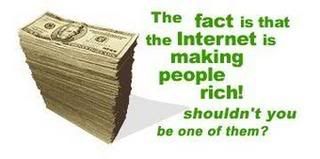The equity market is wobbly. Easy money may be coming to an end. But billionaire buyout artist Denis O'Brien has his cash in hand.
When the stock market took a dive the week of Feb. 26, and junk bond yields shot up, one man was sitting on the sidelines smiling. A jocular 48-year-old Dubliner named Denis O'Brien had, a week before, sold $1.4 billion of junk bonds in a mobile phone company he runs in 22 Caribbean countries. It raised enough to fund his bold buyout of minority owners of the Bermuda-domiciled company--with enough leftover to put $800 million in his pocket. His timing was impeccable. The day he sold the bonds, Feb. 22, junk spreads against Treasurys narrowed to their lowest in ten years. No problem. Investors were so eager for debt in his company, called Digicel, that he says he could have sold his bonds five times over.
"Look, when the ducks are hungry you have to feed them," O'Brien says. "You feed them with pieces of paper."
They're not quacking quite so much anymore. Four days after the sale, with stock market jitters infecting debt markets, junk spreads widened. Bonds rated CCC or lower are now trading to yield 4.98 percentage points over Treasurys, up 57 basis points (hundredths of a percent) from a month ago, according to Merrill Lynch (nyse: MER - news - people ). Digicel bond prices have fallen enough to send the yields up smartly--by 93 basis points to 9.8%.
Buyout buccaneers like our lucky Irishman used to have to wait to turn around a company and take it public before taking their cut. Now they take out a bunch at the buyout, or soon after. Sort of like a home equity loan for the fabulously wealthy. The key: persuading lenders to pile more debt than necessary on your target company. No mean feat for a company like Digicel. It's had nothing but losses in its short, five-year life, and has a negative net worth.
O'Brien's $800 million cash hoard, combined with stakes in publicly held companies, vaults him into the ranks of the world's richest (although too late to be included before the Feb. 9 cutoff date for this year's billionaires list). He joins several buyout kings on the list who have benefited from cheap loans in just this way. Last year private equity firms like Blackstone (led by Stephen Schwarzman, number 249 on our list) took $56 billion out of companies they controlled by loading them with debt, up 40% from the previous year, according to Standard & Poor's. The cash-out deals this year are on pace to nearly double, based on two months of data--that is, before investors rediscovered risk.
The sprint to riches for O'Brien began in November. He had just filed documents to take Digicel public on the NYSE, touting the fact its prepaid calling plans have captured more than half the customers in 4 of its 22 Caribbean markets. But then two bids came in from private equity firms to buy the company, each for $3.8 billion, he says. With 78% of the company he would have been set for life. Reading an e-mail detailing the offers while on vacation in Barbados with his wife and three kids, he had an inspiration.
"I saw how much debt they planned to put on and thought, Why not do this myself." So he called his board. "I said, 'Pull the trigger.' We did a seven- or eight-day road show [pitching bonds]. Bang."
He's timed things well before. He ran another mobile phone company called Esat Telecom, before selling it to BT Group for $2.9 billion. The date: January 2001, not far off a peak in the value of telecom companies. He says success in that venture, another big debt issuer, is one reason his latest offering went so well. "People bought the bonds because they've made money with me," he says.
That may explain why his eager creditors were able to overlook some warning signs in the Digicel prospectus. Like the fact that over a quarter of the bonds are in the form of "toggle" notes, which allows Digicel to avoid cash payments by adding to principal. Or that the company's biggest growth market now is Haiti, better known for coups than calls. Or that total debt, at $2.8 billion, is 8.5 times putative earnings before interest, taxes and depreciation. We say putative because the annual Ebitda number is 4 times Ebitda in the three months that will end Mar. 31.
In an interview an hour after announcing the close of his bond deal, O'Brien offered a few words on all the cheap financing of late, fueled by investors desperate for yield.
"Walls of money," he said. Then he added: "Not sustainable."

|